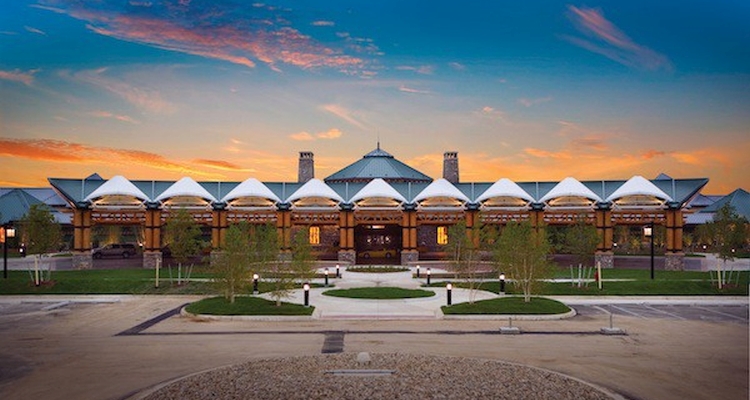Plans for a $400 million casino complex near Rum Village in South Bend, Indiana should not be disrupted by a new federal rule that protects a threatened bat species.
The Pokagon Band of Potawatomi Indians plan to build a tribal village and casino on 165 acres near Rum Village at the northeast corner of Prairie Avenue and the U.S. 20 bypass.
White-nose syndrome, a rapidly spreading fungal disease, has caused significant loses to the northern long-eared bat population and as a result, the U.S. Fish and Wildlife Service proposed a rule in April declaring it a threatened species. Developers would’ve been prohibited from clearing trees on sites that contain mines or caves where the species hibernates, as well as its roosting trees. However, taking effect this month, a less restrictive rule only prohibits the clearing of trees to known sites containing roosting trees. The Fish and Wildlife Service is made aware of roosting tree sites when they are spotted and then recorded in a database, according the South Bend Tribune.
No records of roosting trees are recorded in the database for the acreage in South Bend where the Pokagon wants to build its development, according to Scott Pruitt, a field supervisor at the Fish and Wildlife Service. Pruitt did however point out that the lack of a record in the database doesn’t necessarily mean there ae no roosting trees on the 165 acres. It only means that none have been documented there and in the future there won’t be a search for them.
While the tribe’s proposal awaits U.S. Bureau of Indian Affairs (BIA) approval, the project also needs to clear a U.S. Army Corps of Engineers environmental impact study, which will determine if any wetlands will be affected by the development. In March of 2015, the Bureau of Indian Affairs issued its own draft environmental impact study, which showed outside of traffic congestion, the proposed development would not significantly impact the environment, but would however, benefit the tribe socioeconomically, as well as many other ways.
The project would include 44 housing units, an 18-story Class III casino, meeting space, hotel, parking garage, health services and various tribal government facilities on the city’s southwestern edge. According to a draft study done in April 2015. the development is expected to create approximately 2,000 permanent jobs and 1,400 construction jobs, and produce up to $620.4 million annual revenue.
The Pokagon Band currently operates a tribal village in Dowagiac, as well as casinos in Hartford, New Buffalo (pictured) and Dowagiac under the Four Winds banner. Land that is also owned by the tribe in Elkhart County will be considered as an alternative site for the development, if the land trust application for the site is rejected by the BIA.



